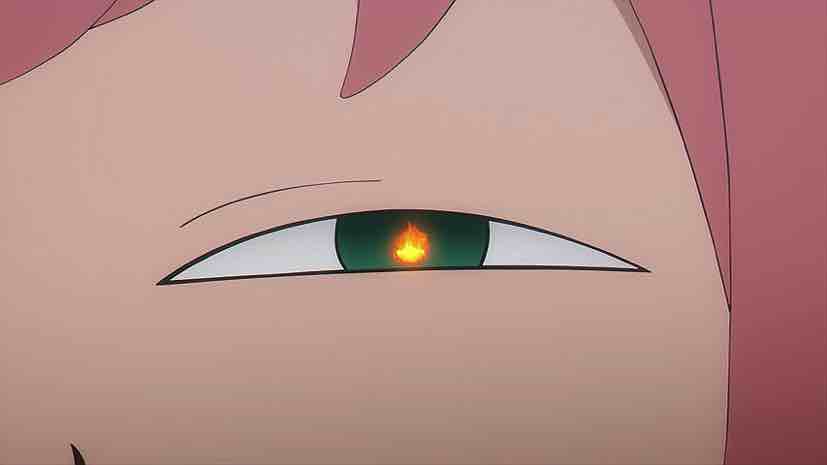 It’s only natural that when a series gets as hyped as Spy x Family is at the moment, there’s gonna be a backlash. Anime discussion in the twitterverse and other places has gotten rather thick with it lately, as fans of other much-hyped franchises feel threatened and lash out, and those who generally detest trendiness do the same. There’s an underlying truth to all this, seems to me – when a series is this overhyped it’s perfectly possible for it to be both very good and overrated. The two are not mutually exclusive, and Spy x Family is a good example. Is it a masterpiece? Not to me, no – and some of the raving about it is pretty over the top. But it still has a lot to offer and deserves credit for scratching as diverse an array of itches as it does.
It’s only natural that when a series gets as hyped as Spy x Family is at the moment, there’s gonna be a backlash. Anime discussion in the twitterverse and other places has gotten rather thick with it lately, as fans of other much-hyped franchises feel threatened and lash out, and those who generally detest trendiness do the same. There’s an underlying truth to all this, seems to me – when a series is this overhyped it’s perfectly possible for it to be both very good and overrated. The two are not mutually exclusive, and Spy x Family is a good example. Is it a masterpiece? Not to me, no – and some of the raving about it is pretty over the top. But it still has a lot to offer and deserves credit for scratching as diverse an array of itches as it does.
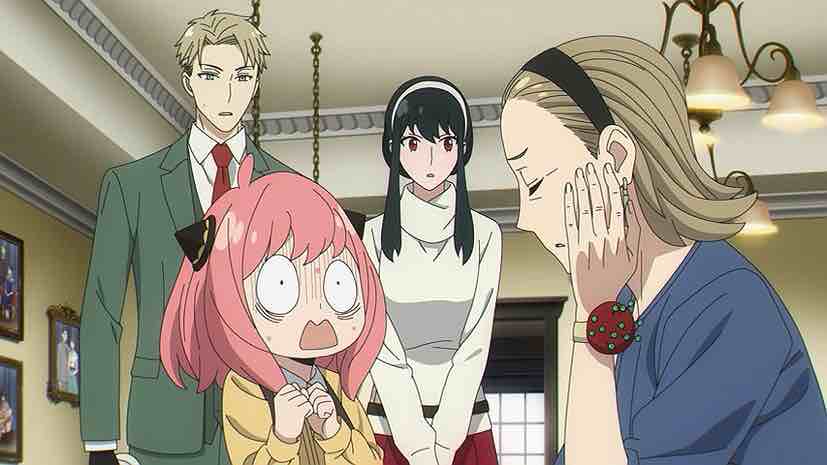 I’d also say this: SxF may not be a masterpiece but it’s certainly better than it showed last week. “Stick to the script” would be my mantra here based on Episode 5 – the source material is much better than the original material based on current evidence. I’d also say this series is better than the triumvirate of modern commercial titans (pun intended) in whose footsteps it’s following – Kimetsu, Jujutsu Kaisen, and Tokyo Revengers (and that titan show too, for that matter). It deserves to be successful even if it doesn’t really merit some of the hyperbole, and if a franchise is going to be the next big thing we could do a whole lot worse.
I’d also say this: SxF may not be a masterpiece but it’s certainly better than it showed last week. “Stick to the script” would be my mantra here based on Episode 5 – the source material is much better than the original material based on current evidence. I’d also say this series is better than the triumvirate of modern commercial titans (pun intended) in whose footsteps it’s following – Kimetsu, Jujutsu Kaisen, and Tokyo Revengers (and that titan show too, for that matter). It deserves to be successful even if it doesn’t really merit some of the hyperbole, and if a franchise is going to be the next big thing we could do a whole lot worse.
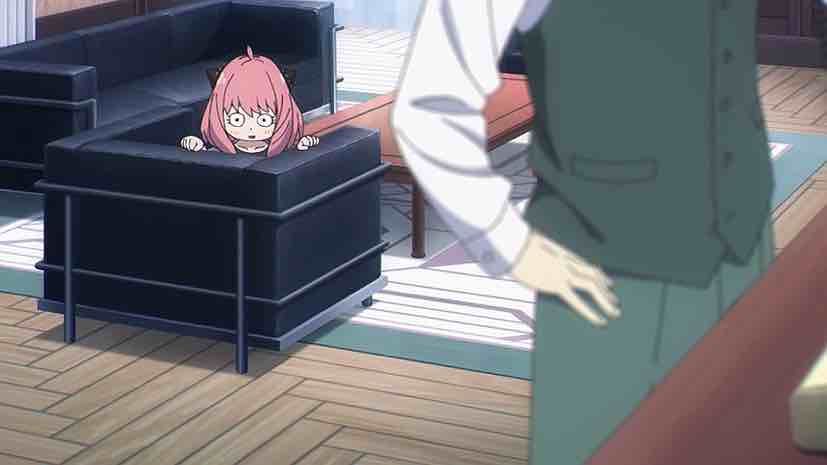 That discussion aside, the series proper really starts now. In a sense we could say the first four episodes (the fifth doesn’t really need to exist) were the prologue. Eden College is where a lot of the action – and comedy – happens. Both the setting and the new characters open a lot of new doors for the series and it wastes no time charging through them. It starts with the uniform fitting – and a rather thoughtless reminder from the tailor (out loud – Anya didn’t even need to esper) that all isn’t Ovaltine and Skittles for Eden students. The stuck-up children of alums look down on the non-alum kids, and the dormies and townies feud. Worst of all, Eden students are targets of crooks – on the (safe) assumption that their parents are loaded.
That discussion aside, the series proper really starts now. In a sense we could say the first four episodes (the fifth doesn’t really need to exist) were the prologue. Eden College is where a lot of the action – and comedy – happens. Both the setting and the new characters open a lot of new doors for the series and it wastes no time charging through them. It starts with the uniform fitting – and a rather thoughtless reminder from the tailor (out loud – Anya didn’t even need to esper) that all isn’t Ovaltine and Skittles for Eden students. The stuck-up children of alums look down on the non-alum kids, and the dormies and townies feud. Worst of all, Eden students are targets of crooks – on the (safe) assumption that their parents are loaded.
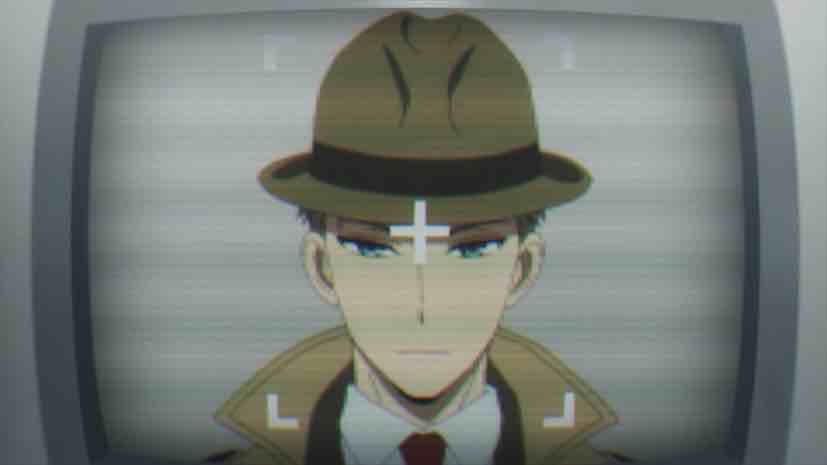 Loid (whose growing gastric unrest is a running gag) gets some unsettling news in a briefing. Eden students get “Stella Stars” for good grades and “contributions” to society”, and “Tonitrus Bolts” for bad grades and behavior. This is important because the “Imperial Scholars” that comprise the school elite are chosen based on getting 8 stars – and their parents meeting is the only social gathering Donovan Desmond attends. His (unseen) older son Demetrius is already an I.S., and it’s assumed younger child Damian – in the same class as Anya thanks to Loid’s meddling – will eventually be too.
Loid (whose growing gastric unrest is a running gag) gets some unsettling news in a briefing. Eden students get “Stella Stars” for good grades and “contributions” to society”, and “Tonitrus Bolts” for bad grades and behavior. This is important because the “Imperial Scholars” that comprise the school elite are chosen based on getting 8 stars – and their parents meeting is the only social gathering Donovan Desmond attends. His (unseen) older son Demetrius is already an I.S., and it’s assumed younger child Damian – in the same class as Anya thanks to Loid’s meddling – will eventually be too.
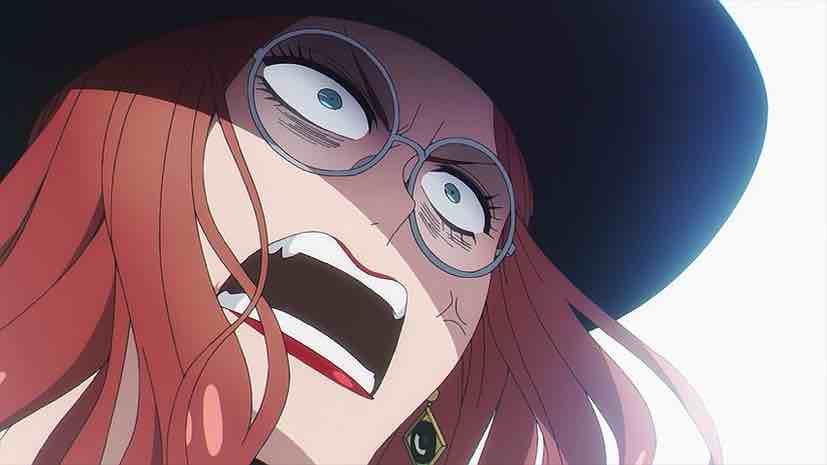 Naturally, Loid despairs of the possibility of Anya ever becoming an honor student, so he focuses on Plan B – becoming friends with Damian and reaching his father that way. One can guess that’s going to be a tall order anyway, but Yor’s well-meaning gesture of teaching Anya self-defense makes it a whole lot harder. After a run-in with some petty thugs Anya gushes in admiration over Yor’s mad skills and begs to learn how to be just like her, and Yor is no match for that. She’s already straining to try and become more mama-like, and this is too tempting an opportunity to pass up.
Naturally, Loid despairs of the possibility of Anya ever becoming an honor student, so he focuses on Plan B – becoming friends with Damian and reaching his father that way. One can guess that’s going to be a tall order anyway, but Yor’s well-meaning gesture of teaching Anya self-defense makes it a whole lot harder. After a run-in with some petty thugs Anya gushes in admiration over Yor’s mad skills and begs to learn how to be just like her, and Yor is no match for that. She’s already straining to try and become more mama-like, and this is too tempting an opportunity to pass up.
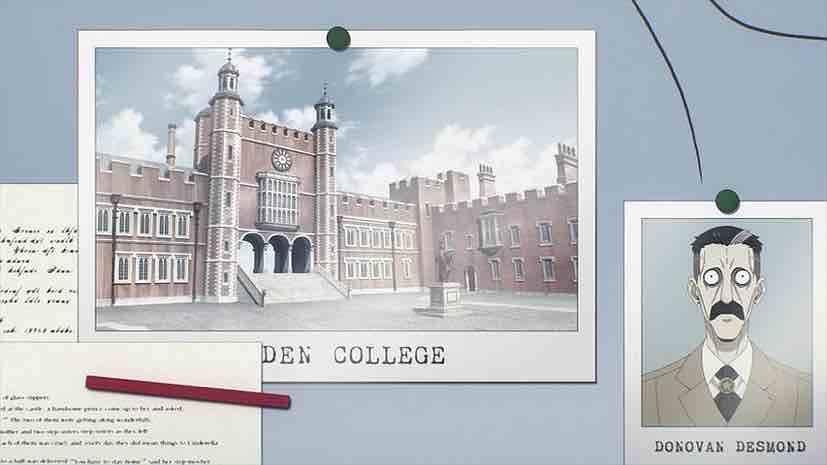 It all comes to a head on new student indoctrination day. Anya tries to follow Loid’s thoughts and make nice with Damian (Fujiwara Natsumi), but his abrasiveness and her lack of social skills are a volatile combination. After he gets a little rough with Becky Blackbell (Katou Emri) Anya snaps and gives him a proper Yor right cross. In one swell foop she manages to get herself a bolt (and it would have been three – eight gets you expelled – if not for Henderson’s intervention) and squarely on Damian’s enemies list. From Loid’s perspective Day One couldn’t possibly have gone much worse.
It all comes to a head on new student indoctrination day. Anya tries to follow Loid’s thoughts and make nice with Damian (Fujiwara Natsumi), but his abrasiveness and her lack of social skills are a volatile combination. After he gets a little rough with Becky Blackbell (Katou Emri) Anya snaps and gives him a proper Yor right cross. In one swell foop she manages to get herself a bolt (and it would have been three – eight gets you expelled – if not for Henderson’s intervention) and squarely on Damian’s enemies list. From Loid’s perspective Day One couldn’t possibly have gone much worse.
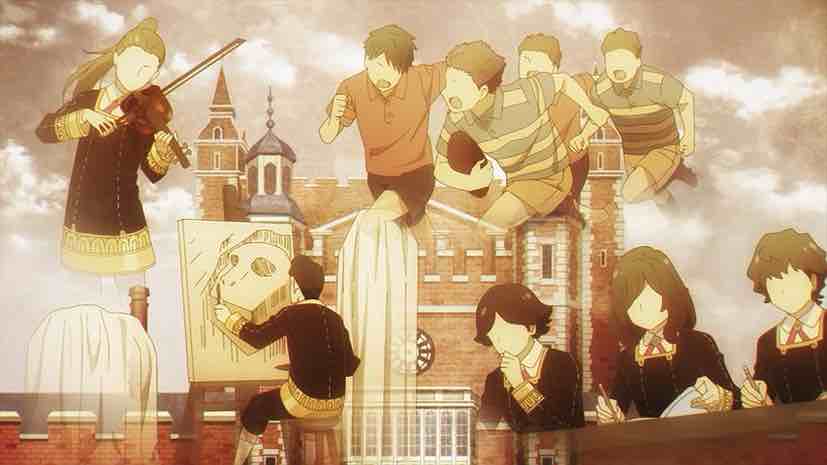 It’s not hard to see that this three-way dynamic with Anya, Damian and Becky is going to be a big part of Spy x Family going forward – Anya and Damian is the most important relationship in the series outside the big three. It’s off to a strong start – the series got supremely experienced and comedically gifted seiyuu for the two new roles, and the chemistry there feels just right. For me the narrative of the manga had already started to feel a little constricted when it got to this point, so opening up the world makes a big difference for the better. There’s a lot of fun to come and I look forward to seeing it play out on-screen.
It’s not hard to see that this three-way dynamic with Anya, Damian and Becky is going to be a big part of Spy x Family going forward – Anya and Damian is the most important relationship in the series outside the big three. It’s off to a strong start – the series got supremely experienced and comedically gifted seiyuu for the two new roles, and the chemistry there feels just right. For me the narrative of the manga had already started to feel a little constricted when it got to this point, so opening up the world makes a big difference for the better. There’s a lot of fun to come and I look forward to seeing it play out on-screen.


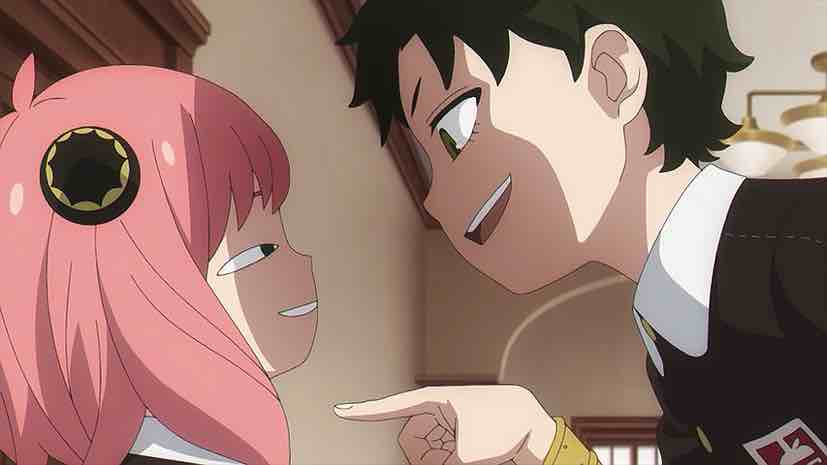
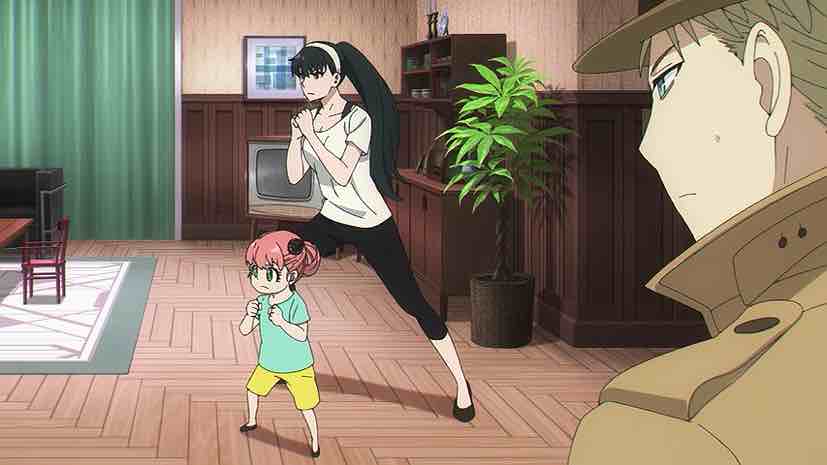
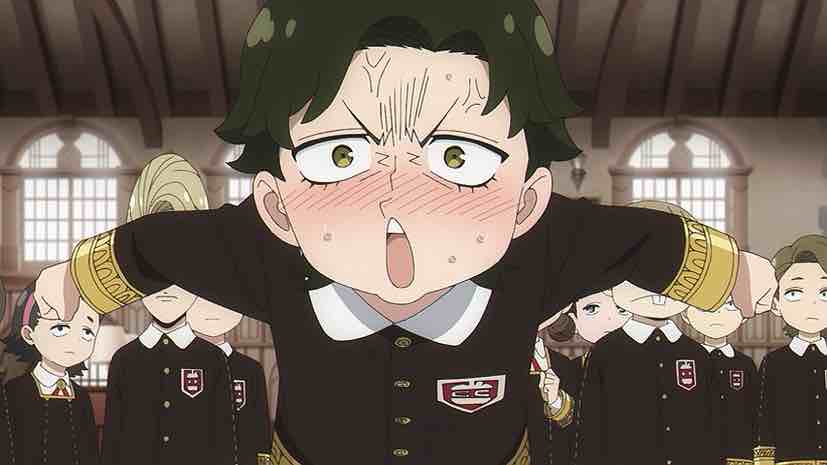
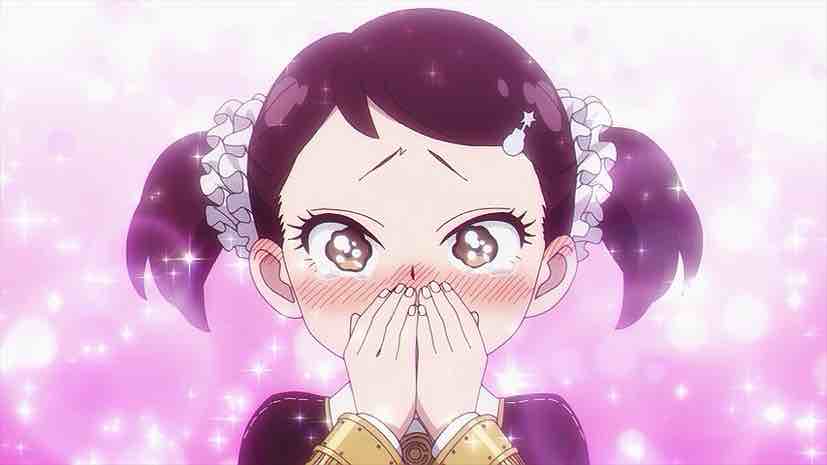
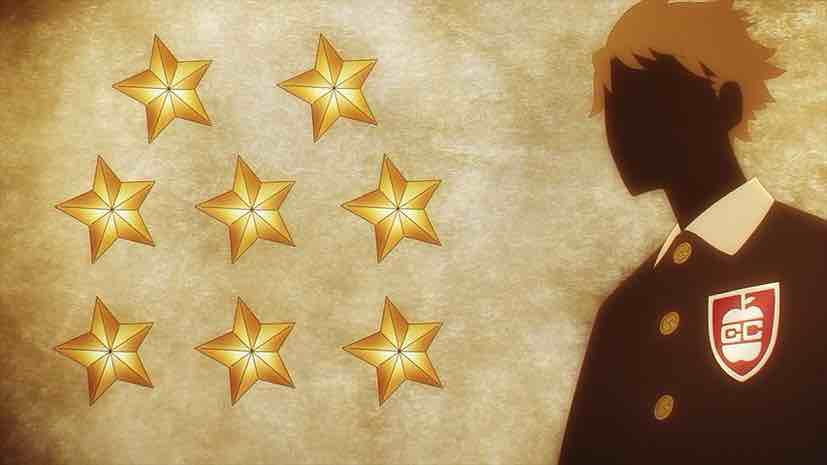
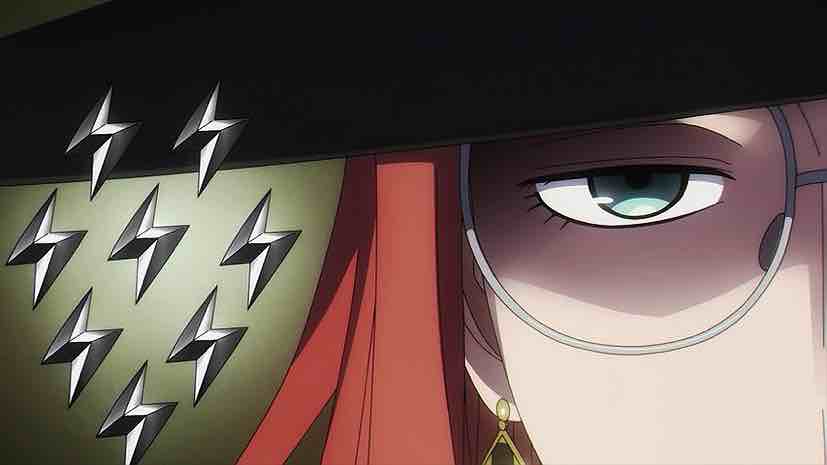
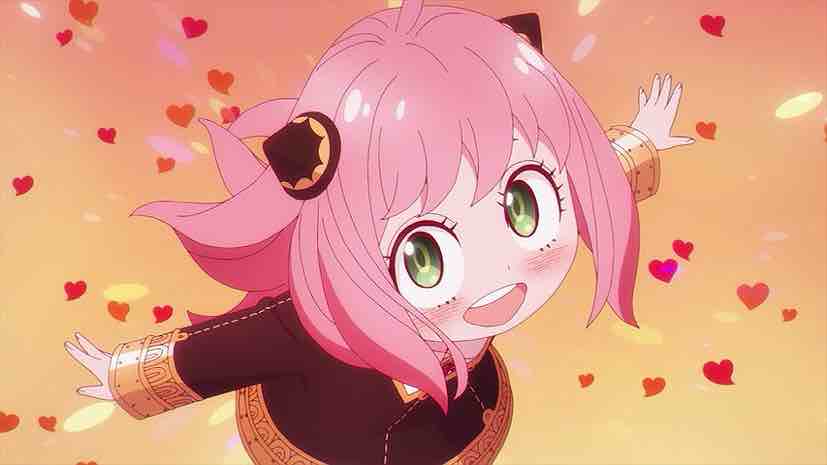
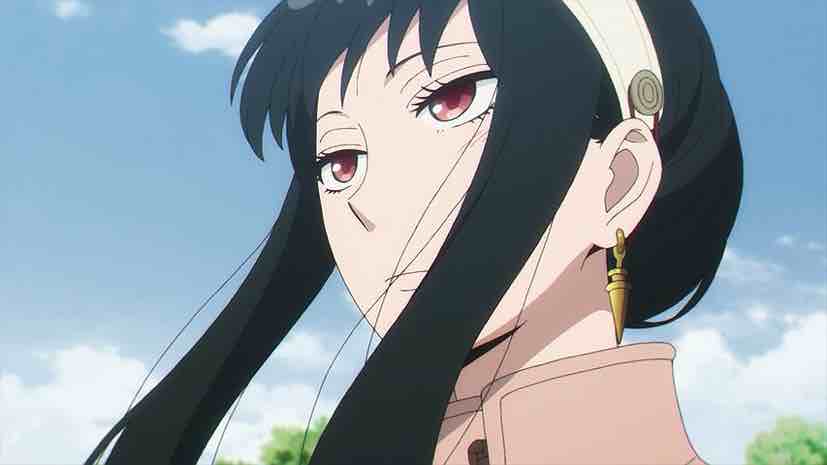
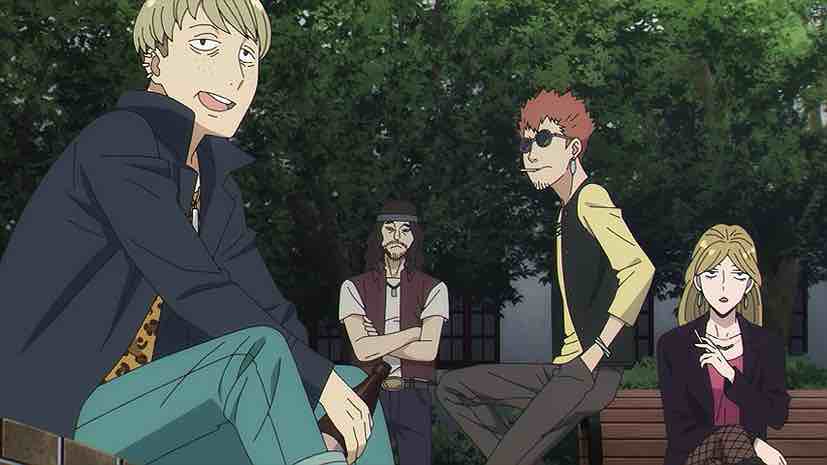
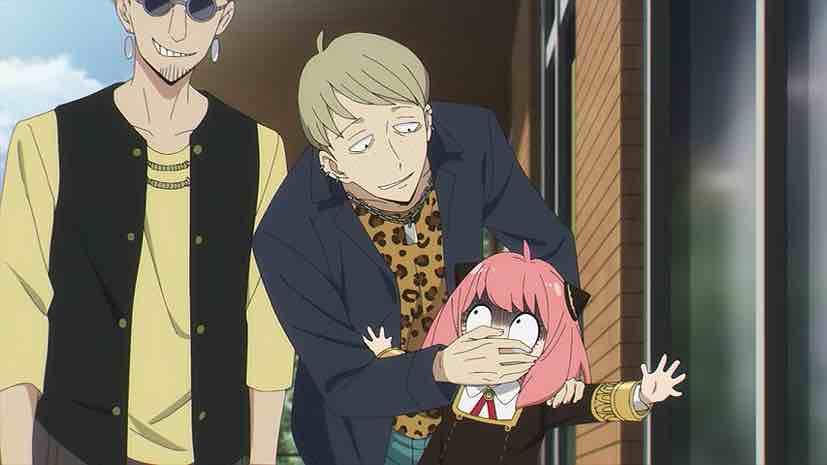
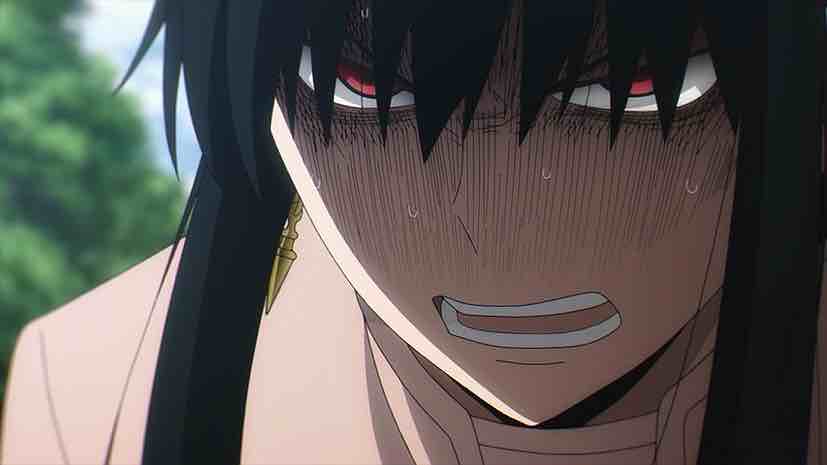
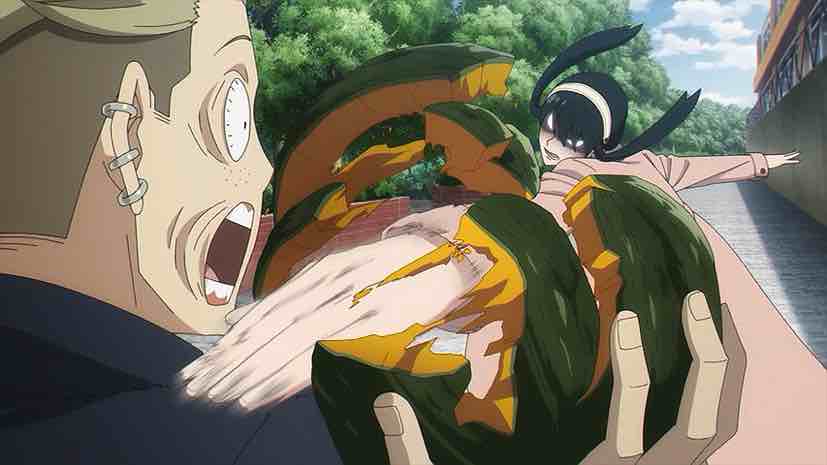
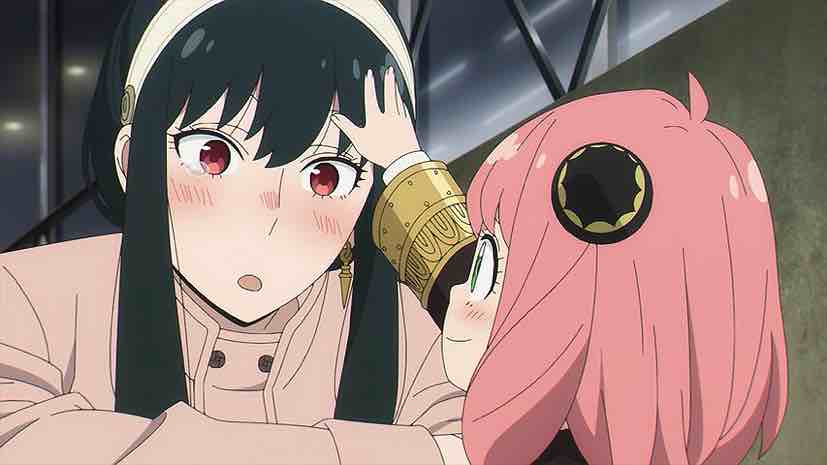
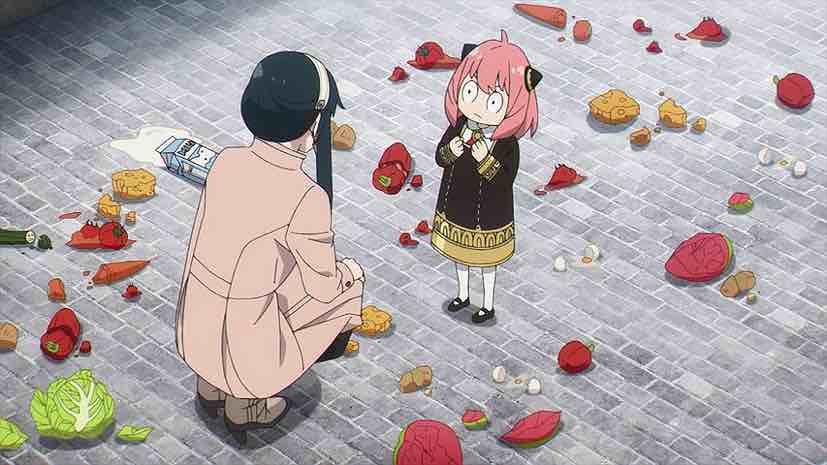
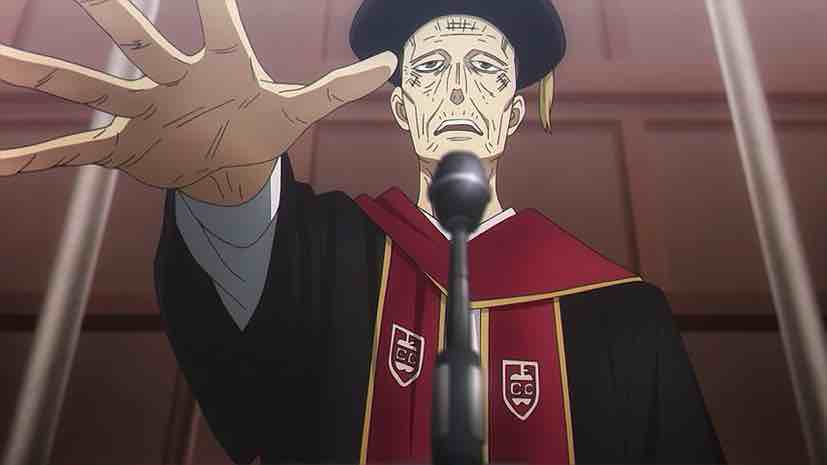
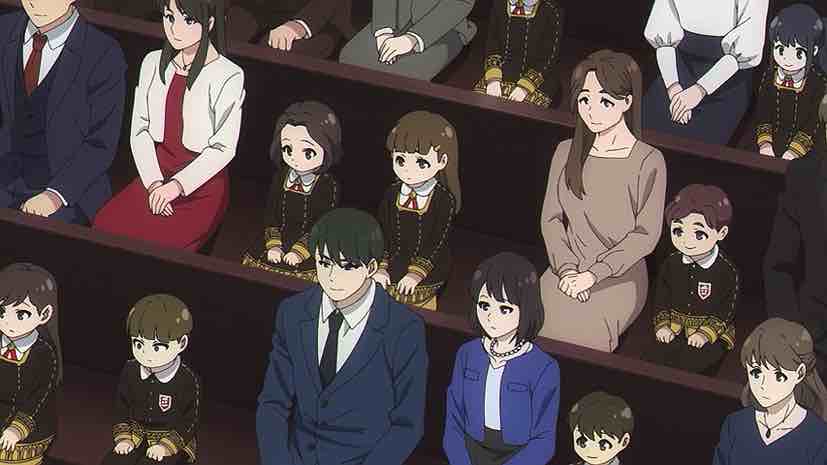
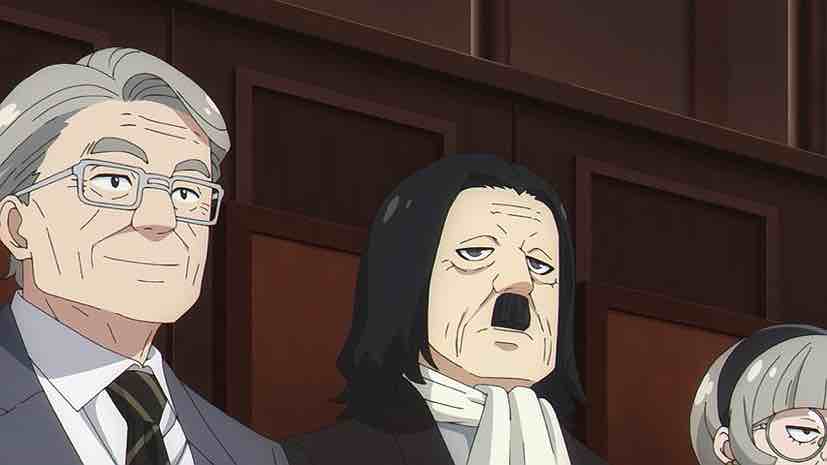
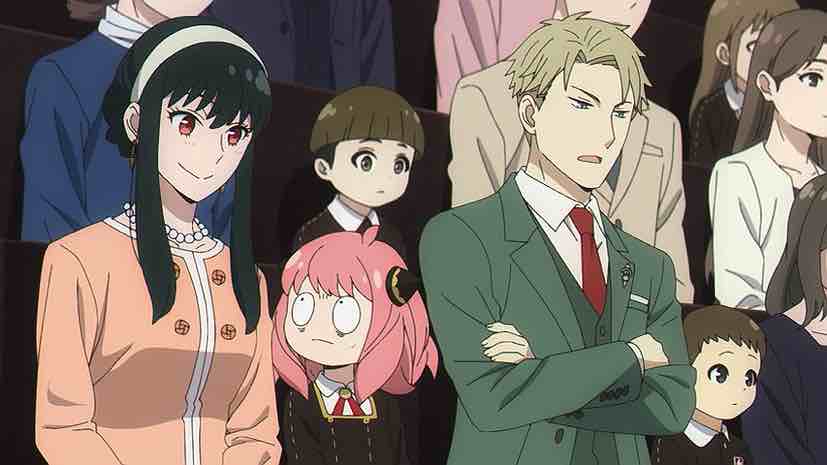
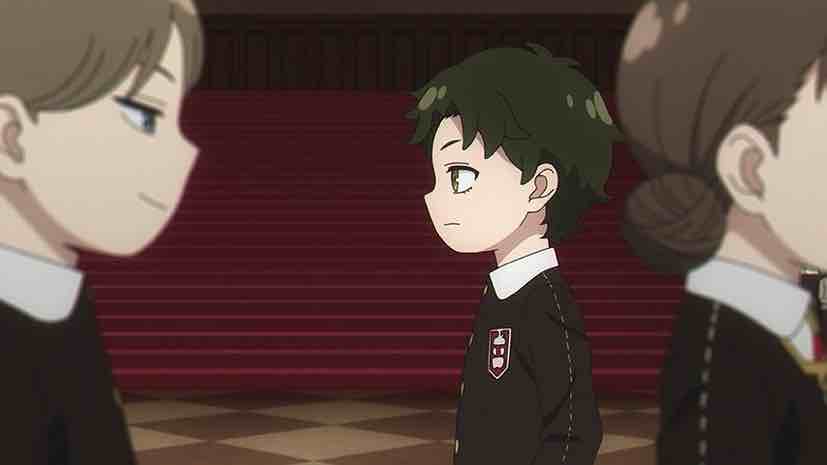
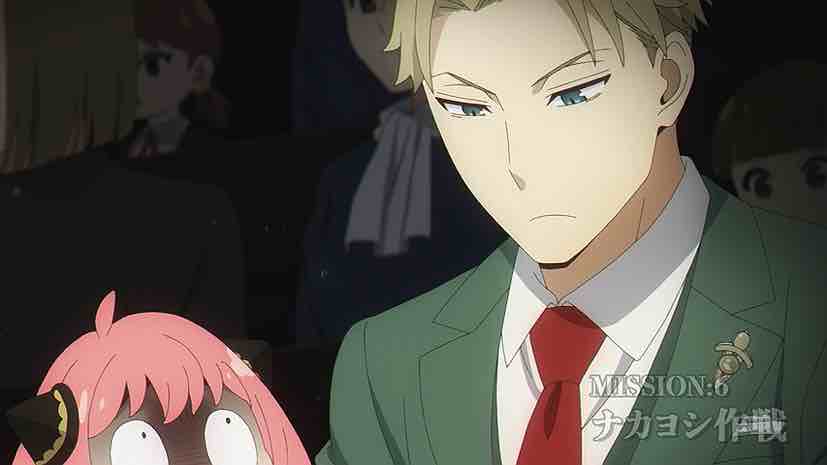
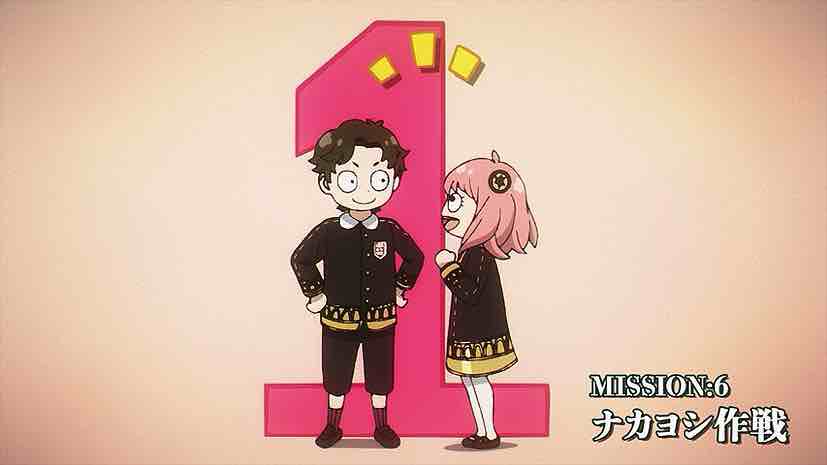
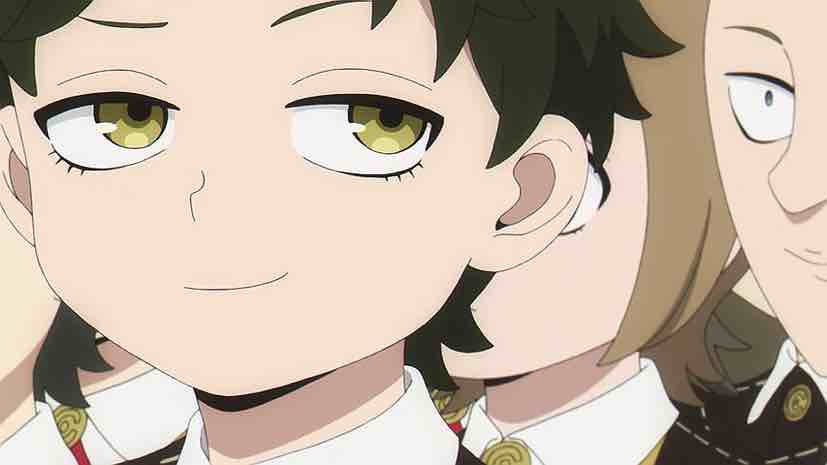
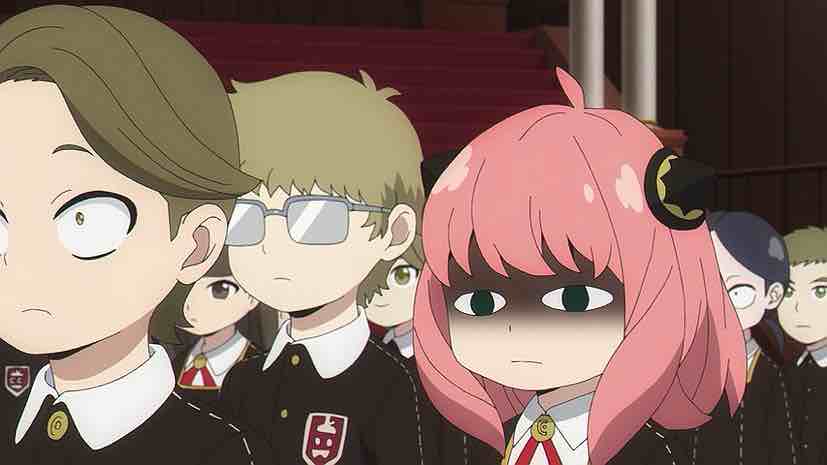
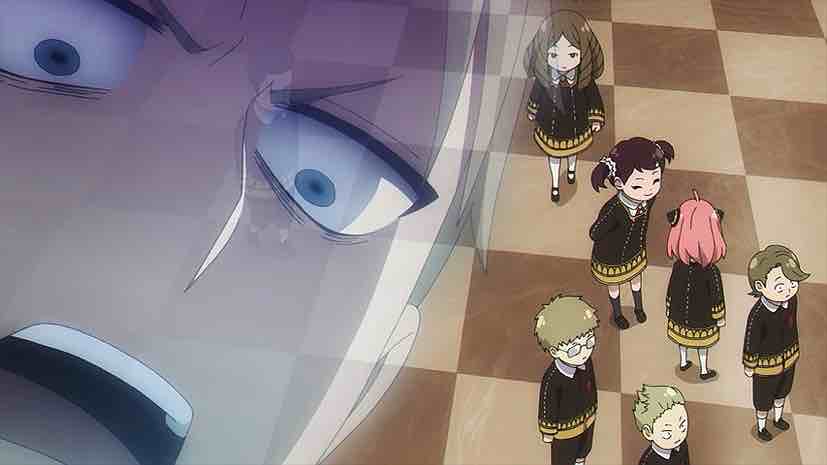
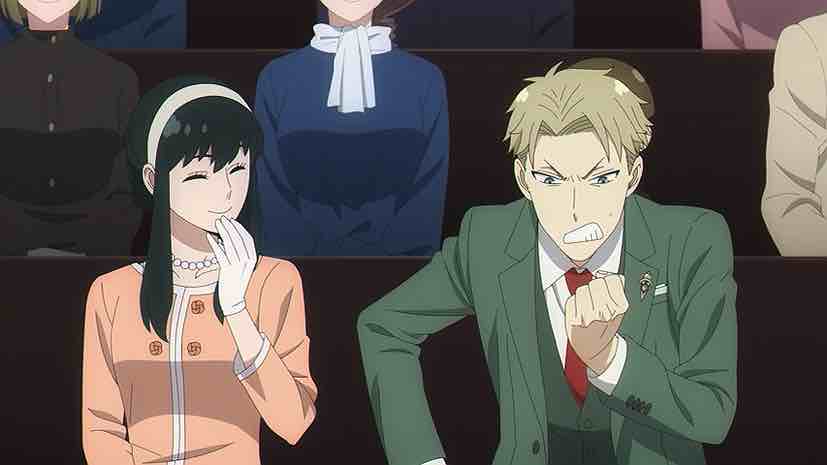
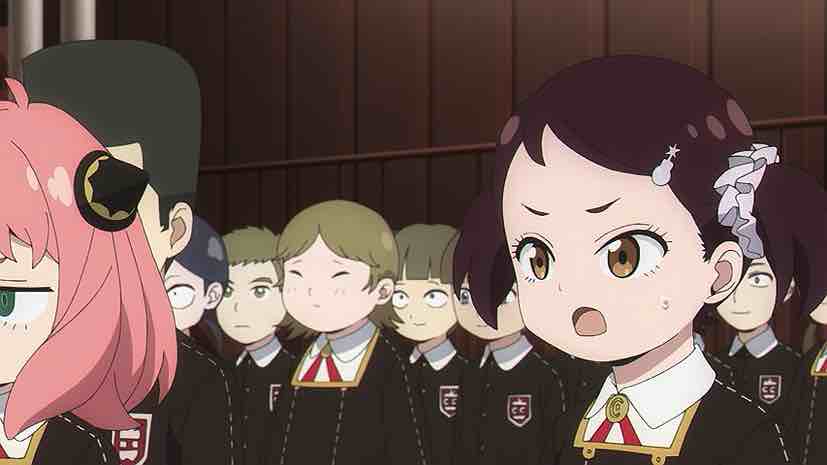
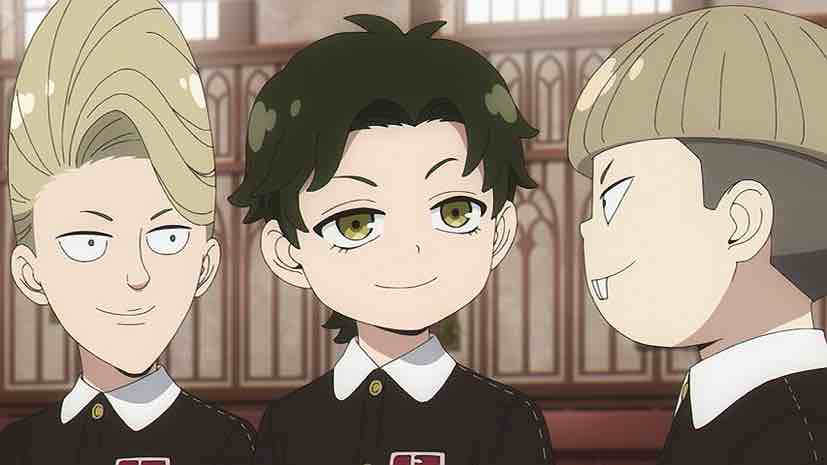
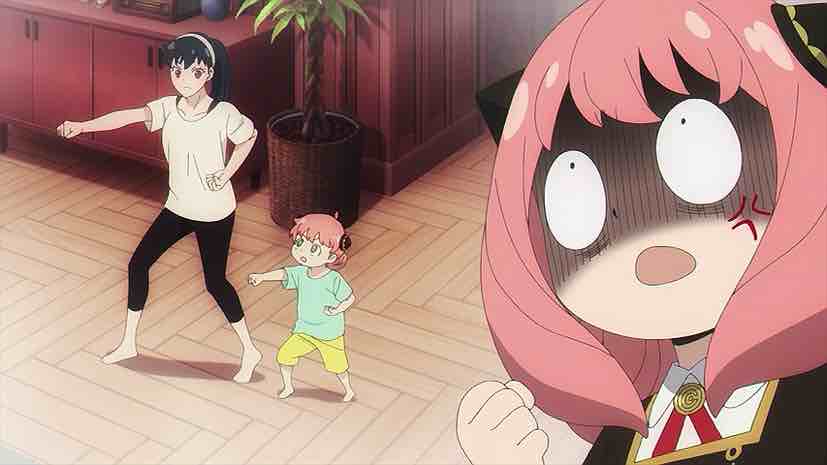

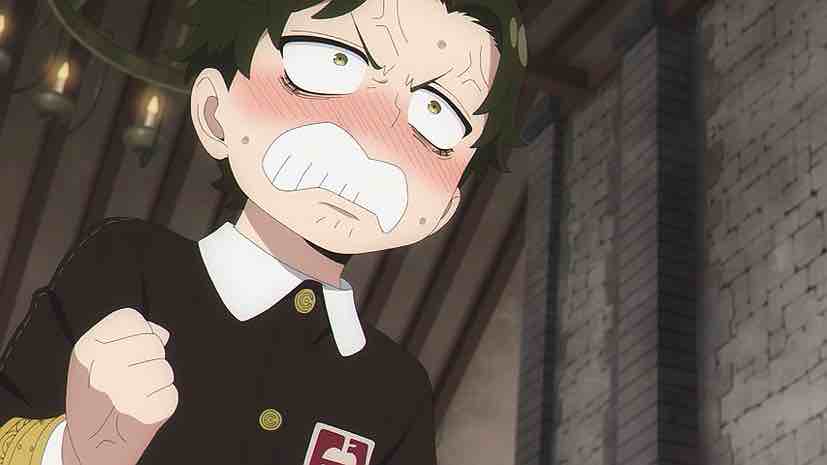

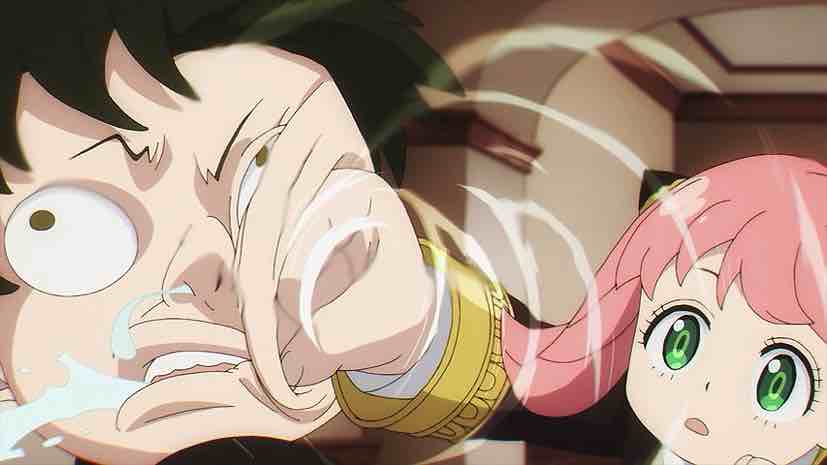
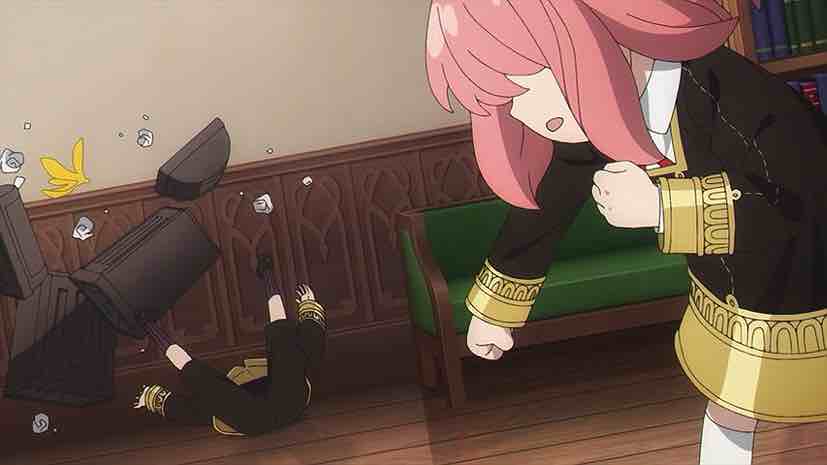
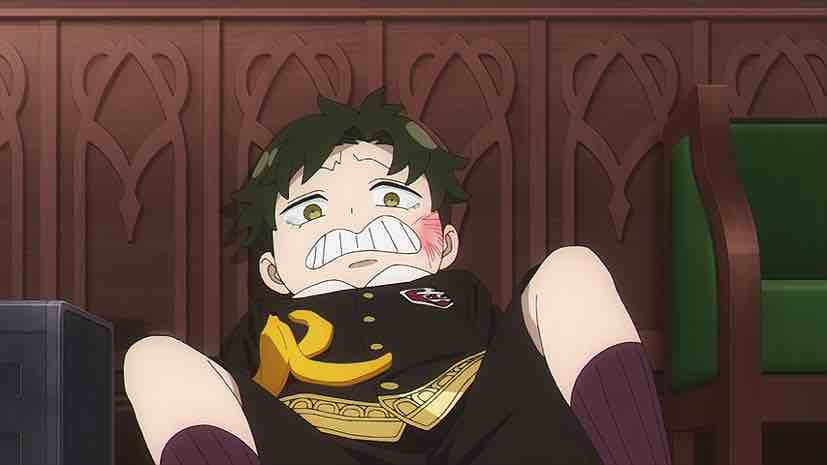
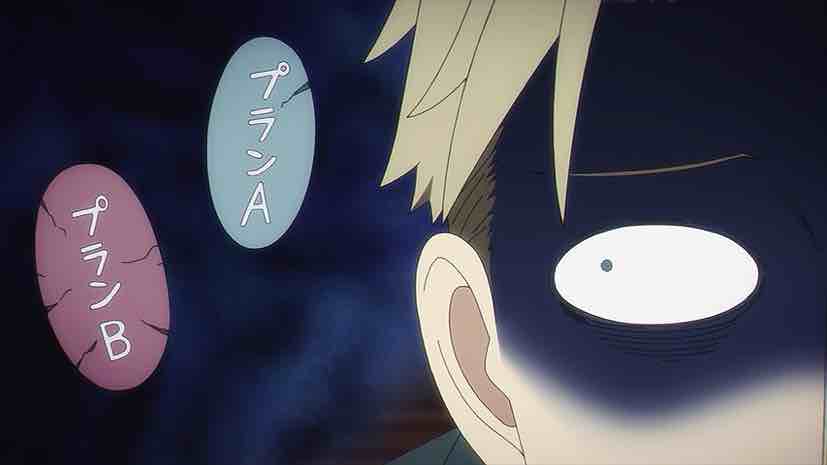
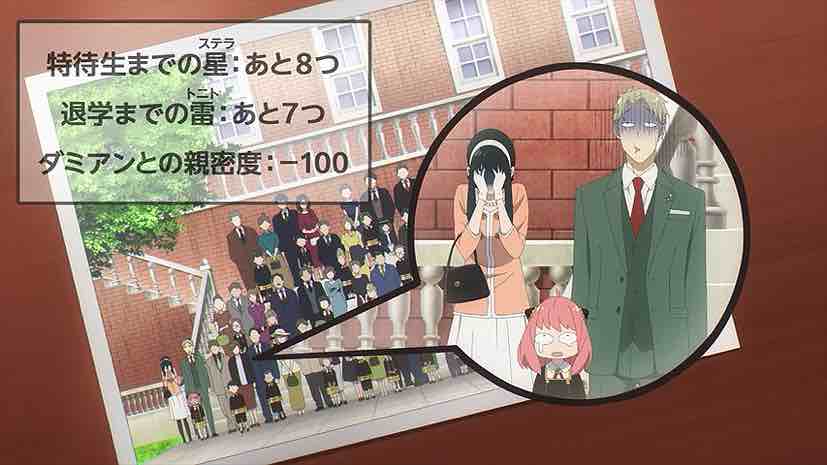


Simone
May 15, 2022 at 4:40 pm> I’d also say this series is better than the triumvirate of modern commercial titans (pun intended) in whose footsteps it’s following – Shingeki, Jujutsu Kaisen, and Tokyo Revengers (and that titan show too, for that matter)
I assume you meant Kimetsu no Yaiba there? Anyway honestly I find it an odd comparison to bring up, given how this is just a whole different genre – situation comedy with a sprinkle of action and intrigue to spice it up, essentially. I will however defend that JJK totally is superior in writing to KnY despite what the sales numbers say. At least in anime form (I find that it enhances a lot the sometimes confusing manga). But comparing any of those with SxF just feels wrong, there’s not a lot of overlap in what they’re aiming for to begin with.
Guardian Enzo
May 15, 2022 at 4:55 pmI think it’s explicit in the sentence that the comparison is based on commercial success and nothing else, so TBBH I think your indignation is totally misplaced. When it comes to pushing manga volumes there’s really no other recent series you could put in that category (until Chainsaw Man’s anime hits at least).
Simone
May 15, 2022 at 6:48 pmI didn’t mean to come off as indignant, sorry – merely saying that I don’t personally have a way to decide which I would call better or worse (of course I get the basis for the comparison, but I also think those vast successes probably draw from different target demographics, even if there’s bound to be a certain overlap).
Guardian Enzo
May 15, 2022 at 7:16 pmWell, that’s fair enough. But I don’t totally buy the premise – though I guess it would be more accurate to say “I like *** more than ###”. Can we not say something is objectively better than something else if the genre is different? Can I not say “The 400 Blows is better than Joe Dirt”? If you want to really quibble you can make the case that any declaration of one piece of art over another is definitionally subjective rather than objective. And you can preface (or postscript) any such statement with “in my opinion”. But I don’t think in the real world that’s either practical or necessary, and I don’t think it’s inherently invalid to compare narrative fiction of different genres, especially in the same medium.
Spy x Family is better than Kimetsu, JJK, or Tokyo Revengers. In my opinion. ;-P
Simone
May 15, 2022 at 7:52 pmWell, “objectively” better is always a spiny ground with the quality of art. But in general I would say that sort of comparison gets fuzzier for me? So if the two works really blatantly differ in quality (“The Good, the Bad and the Ugly” is better than “Scary Movie 4”) then I have no problem with it, but when both are competently done and inspired takes on their respective genres, it really becomes a matter of “which kind of thing do I enjoy more”, and that’s so subjective it’s not even worth dwelling much on besides for purposes of defining purely personal tastes (e.g., if I had to buy a volume of manga as a present, I guess I’d know which you would like more).
I see stuff like comparing Kimetsu with its fellow battle shonen manga like JJK as a lot more meaningful, because here the works have fundamentally similar *goals*, and it really boils down to competence how well they achieve those (and as I said, while I totally get why KnY has broader appeal, I also think that’s exactly what makes it have less personality than JJK). With Spy X Family in particular, I think a big part of why it’s so refreshing is that it’s actually quite unique – there’s no manga I can name that straight up hits the same blend in terms of atmosphere, comedy and tension. So in a way it has an easier job because it has no immediate direct competitors – they’ll crop up eventually, I suspect, but for now, it’s sort of playing the game by its own rules and thus standing out because of it.
sonicsenryaku
May 16, 2022 at 3:14 amI completely get what you’re saying Simone about the whole “finding more meaning in comparing works that are tied to a particular genre.; doing so better highlights what makes the genre an engaging artform while simultaneously measuring how well those works exemplify its genre’s tropes and the resulting success that comes from it; I actually agree with this. If I wanted to explain to someone what makes HunterxHunter one of the best of its class, it might be easier and more valuable to compare it to another work in the genre That being said, I also think its meaningful to make comparisons of works that exist in disparate genres and that those comparisons go well beyond what person tends to enjoy more, (though to be fair, you can argue that all art analysis generally boils down to what a person enjoys more anyway).
For example, if I were to compare Fullmetal Panic Fumoffu? to something like Re: Zero, I don’t think it’s a strong argument to rebuttal with: “Well one’s a comedy and the other is a dark fantasy isekai so you can’t really compare the two.” There absolutely IS inherent value in comparing the two based on the quality of their script, how well the series in question uses animation to tell their story, how well each series balances characters, pacing, and pathos, and in general, how well each series excels at their goals. For this example, I think fullmetal panic fumoffu? is a better show than Re: zero by a country mile, but that’s not because I prefer to laugh more than being made to feel tension or dread. I just find that Fumoffu’s scripting, animation, editing, and objective are better executed when comparing Re: zero in those same departments. In that regard, there’s plenty of value in looking at both shows in this way despite them being of two different genres. While Re: Zero aims to tackle loftier writing goals like being a sprawling narrative meant to be rife with intrigue, mystery, character introspection, and world building (and is often praised for attempting to do these things), the weakness of its script and world building betray those ambitions, lessening my investment and making for a less enjoyable experience when compared to Fumoffu for me. That isn’t necessarily defined by some arbitrary preference, but rather of my opinion that Re: zero fails to uphold a certain standard when tackling its goals in a way Fumoffu doesn’t; and despite the fact these two shows are tackling dissimilar goals, both of them still have to fall in line with the same principles to elevate their quality.
Yes there are things in life that are so disconnected from a category that comparing them provides no value. For example, what value is there to compare the literal sun to a pair of crocs I bought from macy’s? Nothing. Perhaps you could find some broad umbrella to place both of those items into, but then even if you could, they’d be separated by millions of miles of subcategories that comparing would not have any associative value. That’s not quite the same for things in the same medium, especially when those works need to adhere to the same broad but significant principles to generate investment in the consumer
Simone
May 17, 2022 at 7:05 pmI get your point, but what I meant is that specifically here we’re talking about two works that are both I would say undeniably good at what they set out to do – they just set out to do different things. JJK is a really good battle/horror shonen – not “the best ever” material maybe, but definitely good. KnY is simple in writing but as far as animated action shows go you won’t find a better feast for the eyes easily. Attack on Titan, arguments about the politics aside, has a fairly compelling story and themes that clearly resonate with a lot of people. And Spy X Family is funny, cute, sweet and tense in equal amounts, delivering a complete package, all tied together by some good thematic unity. Each of these is an expertly done work in its own niche – the comparisons make more sense between JJK and KnY since they aim for similar goals (and I’ve said my opinion on that), but beyond it, I just don’t think there’s enough of a gap to make cross-genre comparisons very meaningful.
I agree with you on Re: Zero btw but IMO none of these shows falls into those trappings – not even KnY, which is my least favourite of the four (I won’t go into Tokyo Revengers since I don’t watch it). They are all pretty good at what they do, so all that’s left is whether what they do is something you enjoy.
sonicsenryaku
May 18, 2022 at 7:02 amYea that makes sense. You’re pretty much saying that all these popular juggernauts are popular because there’s something in their genre they’re clearly excelling at with a quality that sets them apart from their other contemporaries, whether or not the whole entire package comes together to make something extremely profound. in that vein, comparing shows of different genre’s to evaluate or justify their success isn’t all that useful, right? And yea, I also agree that none of those shows fall into the trappings Re: Zero does. At least I don’t get as irritated watching those Shounen juggernauts the way I do when I watch that show.
Riv
May 16, 2022 at 12:33 amI’m enjoying Spy x Family but I haven’t fallen wildly in love with it either. I think for me the main issue is that I’m not particularly invested in any of the three main characters, at least not yet. I like them, and I find most of the comedy amusing, but that’s about it. Unless that changes, I’m not sure I’d stick with this for more than one or two seasons because that would feel pretty sufficient. Of course, depending on plot and character development, that could change.
Guardian Enzo
May 16, 2022 at 7:01 amAt this stage yeah, I’m pretty close to that. I think it’s a relatively simple premise that’s executed with real panache, but (and I haven’t read enough of the manga to know) long-term emotional commitment ties into how much real development and evolution there is. But I’d also say it isn’t the series’ fault that it’s become a sensation, and it shouldn’t be criticized for the somewhat inflated praise it’s getting.
steve
May 16, 2022 at 10:04 amif the expectation isn’t unrealistic (marvel sort of stuff in anime), I actually enjoy the anime adaptation of jjk at least more than kimetsu, it fits the mould of a popular series.
But any reason why S&F is so wildly popular? it isn’t typical or is it just that the commercial world need a new focus?
Guardian Enzo
May 16, 2022 at 10:37 amI don’t think the latter would be enough.
Maybe it’s the subject of another video, but trying to pinpoint why mega hits are mega hits is a tough game. SxF has a lot of crossover appeal – “highbrow” and lowbrow. It’s got a seinen cachet but little kids love Anya, and otaku love Yor. What seems to be common with the true kaibutsu franchises is that they appeal just about equally to men and women, and across a wide swathe of age groups.
DonkeyWan
May 19, 2022 at 9:06 pmI, for one, enjoyed the hell out of this episode.